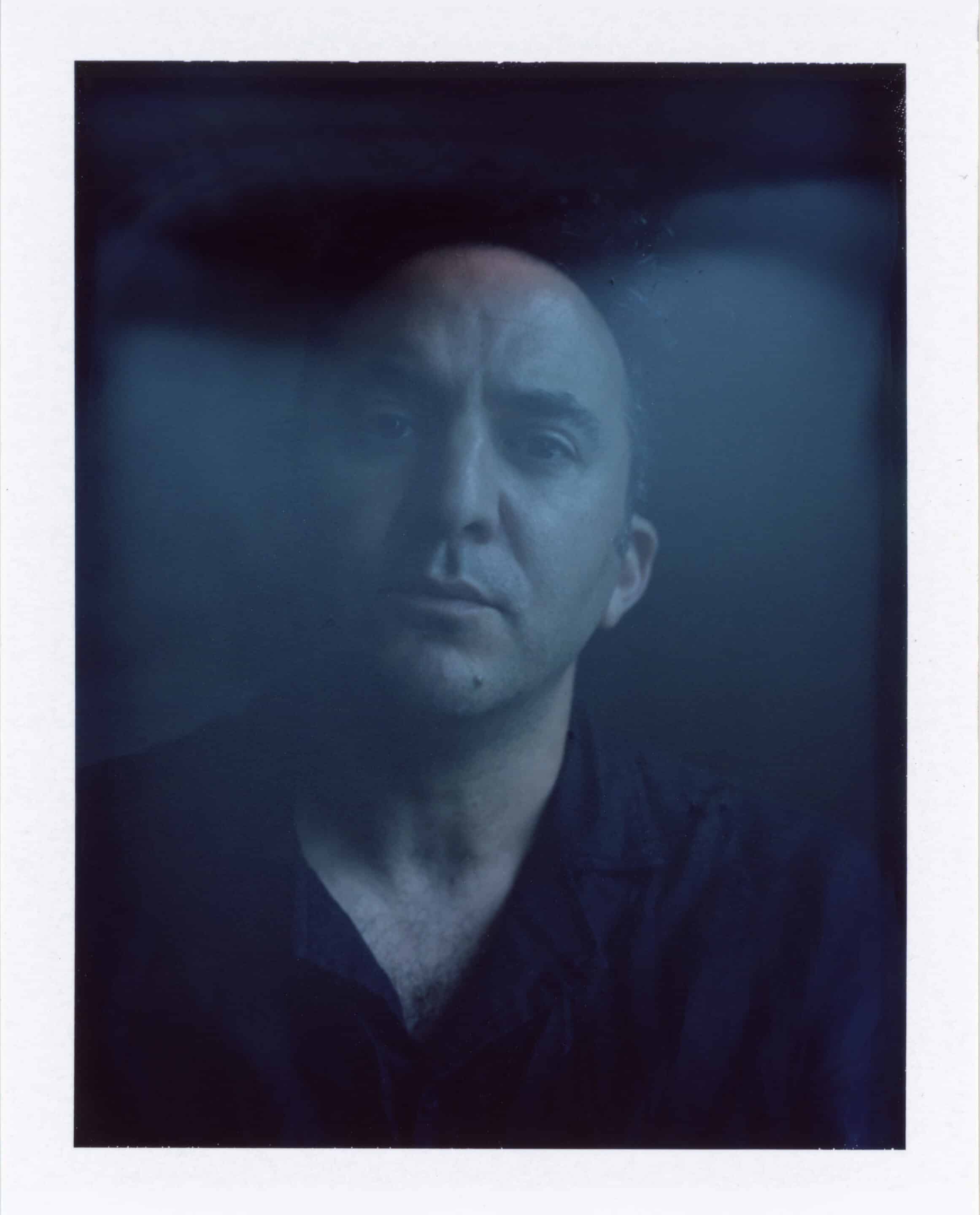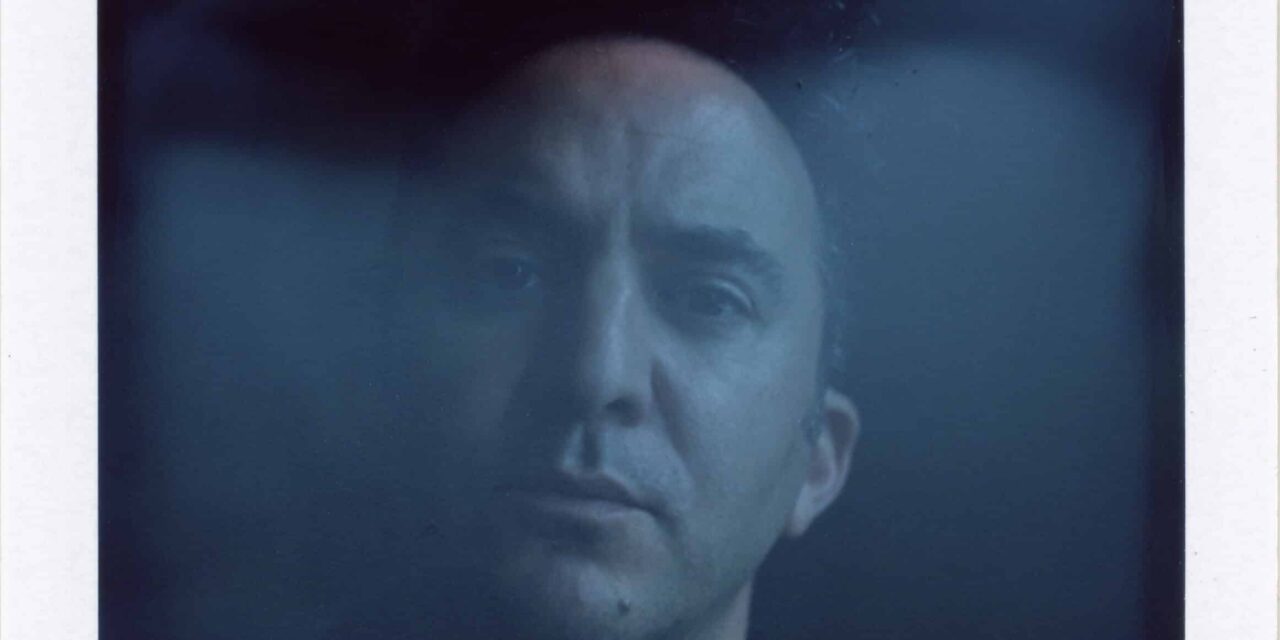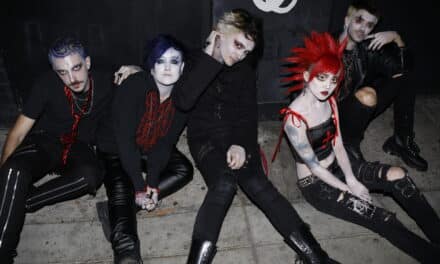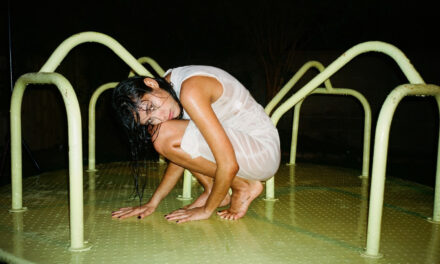After seven years of silence, Fulton Lights, the Washington, D.C.–born project of Andrew Spencer Goldman, resurfaces with an intimate yet expansive new body of work. Out November 7, the upcoming EP Well The Night Has Come marks Fulton Lights’ first release since 2018’s Moonwalking into the Future, signaling not just a return, but a rebirth.
The four-track collection—written and produced by Goldman and mixed by Grammy-nominated Tony Maimone (Pere Ubu, Book of Knots)—is a meditation on creativity, fear, and the dissonance of our times. From the first note, Fulton Lights bends expectations, weaving together shimmering textures, bold arrangements, and fearless emotional resonance.
Leading the way is the hypnotic new single “Hold That Thought”, premiered by Magnet Magazine and now streaming everywhere. Featuring John Davis (Q and Not U, Georgie James) on backing vocals, the track drifts from Neil Young–inspired guitar haze into unexpected Augustus Pablo melodica echoes, grounding itself in Fulton Lights’ trademark refusal to color inside the lines. “The song is about trying to stay open to the sparks of creativity and catching them before they dissipate,” Goldman explains. “Easier said than done.”
Built with longtime collaborators TJ Lipple (Aloha), Jean Cook (Ida, Waco Brothers, Beauty Pill), and Adam Ollendorff (Will Hoge, Kacey Musgraves), the EP finds Fulton Lights expanding its sonic universe. Paloma Sadie May shimmers from delicate guitar into a full orchestral bloom, while These Notes Don’t Break becomes a pedal steel–drenched meditation on mental health, hazy yet deeply grounding.
The title track, “Well The Night Has Come,” stands as the emotional core of the record. A haunting reimagining of Ben E. King’s “Stand By Me”, Goldman transforms a familiar classic into a father’s lullaby for his child, laced with love, dread, and the weight of planetary uncertainty. With lush string and horn arrangements from Karen Waltuch (75 Dollar Bill, Wilco) and Justin Mullens, the track feels like both homage and radical reinvention—pulling from tradition while reshaping it into something entirely new.
After years of stillness, Fulton Lights returns not with nostalgia, but with boldness. Well The Night Has Come doesn’t just pick up where the project left off—it pushes further, reminding us that Goldman’s vision has always thrived on tension, surprise, and heart.
Well The Night Has Come is your first release since 2018. What pulled you back into the studio after such a long fallow period?
I had been stuck with a real mental block for a long time where I had a lot of ideas and unfinished songs, but just felt unable to work on them or to bring myself to finish them. There was a kind of protracted process of working myself through it, lots of conversations with various people who helped me get unstuck. I had been discussing my block with TJ, who has known me for twenty-five years and knows how I can be, and he very directly and very characteristically called me on my shit and suggested we just get into a studio. And of course that was all we needed to do.
“Hold That Thought” moves from Neil Young shades into Augustus Pablo melodica territory — was the intention always to surprise the listener, or did that shift happen organically in the studio?
I don’t like surprise just for the sake of surprise. But I do like the unexpected, and I do think that sometimes there is a right choice that isn’t always the obvious choice. The melodica happened with “Hold That Thought” as the song was nearing completion, but there were these gaps in the bridge and outro where I knew something needed to happen but didn’t want it to just be more guitar. We were in the studio recording John Davis’s vocals, and we started talking about what the song might want. I don’t remember who spotted the melodica, but it was there. I tinkered afterwards with running it through the space echo. And there you have it.

You’ve described the single as about “catching sparks of creativity before they dissipate.” How do you personally keep that creative channel open?
I’m still working on it, and I don’t always succeed. Lately I’ve been playing with watercolor. I have absolutely no idea what I’m doing, but that’s kind of the point.
The EP is stacked with longtime collaborators — TJ Lipple, Jean Cook, Adam Ollendorff, John Davis. What does bringing that circle of musicians into your work unlock for you?
These are all incredible musicians who have been making amazing music for several decades, but apart from their musical chops there is some additional comfort that comes from having familiarity. They may have an intuitive understanding of some of my musical choices, or at least the spirit of what I’m doing, even when I’m incoherently trying to verbally articulate something. I know they’ll be able to tap into the music in spite of me speaking in caveman grunts and wild gestures, which is most of the time.
“Paloma Sadie May” expands from delicate guitar vibrato into orchestral bursts. How do you decide when a song should stay small and when it should bloom into something cinematic?
The songs lead the way if you let them. There is a lot of sitting with things and listening for the parts before they’re there. There’s no checklist but I suppose that while I’m playing through something or listening to an early demo I will try to zone in on how the song makes me feel, what sorts of things it tonally or melodically or rhythmically hints at, are there things I’d like to explicitly reference, et cetera et cetera. Sometimes I have a very strong idea for something early on, and other times it will kind of reveal itself as we go.
“These Notes Don’t Break” takes on mental health through hazy pedal steel and atmosphere. Do you find music to be a space of processing, or more of a release valve?
Great question. It’s both. When I don’t work on music, I become a worse version of myself. Maybe that speaks to the release valve bit. But it’s also really clear to me that music is an important part of my processing of all kinds of things either consciously or subconsciously.
The title track flips the words of “Stand By Me” into a lullaby shadowed by fear of the future. How did you balance homage with deeply personal reinvention?
It started unintentionally and ended intentionally. When I wrote this song it was at an acutely scary moment in time, and every night I’d be singing “Stand By Me” to my daughter. You can see how the two things might come together and get reconstituted as something that lyrically refers to Ben E. King’s version while being its own thing. When it came time to record I knew it wouldn’t sound like “Stand By Me” at all, but that wasn’t the point and would have been a bad idea in any case. You can’t one-up one of the best songs ever written and recorded. I just made some intentional arrangement choices that I felt would be a nice homage to the original for anyone paying close attention to the lyrics — the strings, the percussion, the tremolo on the guitar.
Parenthood clearly informs this record — singing to your daughter, writing lullabies. How has being a parent shifted the emotional core of Fulton Lights?
I was talking to a friend about this recently. Their thought was that parenthood has drawn the focal point in my work away from the internal to more external things. An ego-shrinking. That may be true to some extent, although it feels like an oversimplification. I think it might be more accurate to say that parenthood has added depth and layers to the emotional core in all kinds of ways. The love is deeper, the fear is deeper. On a day to day basis, there is more joy, but also more worry; more fun, but also more exhaustion. In theory, this all finds its way into the music. I would like to think so.
You worked with Grammy-nominated Tony Maimone on mixing. What did his ear bring to the EP that surprised you?
Tony has more experience doing this than just about anyone I can think of, but he also brought a fresh perspective. He had never heard these songs before, and I had never worked with him before, so anything that I was trying to do had to pass the Tony test. When it was on, his joy was apparent. When it was off, he would flag it. He flagged plenty of things, and the whole mix is better for it. I feel extremely grateful that we connected on these songs.
After years away, Well The Night Has Come feels like both a return and a reinvention. Do you see this release as a continuation of Fulton Lights’ story, or the beginning of a new chapter?
New chapter!





